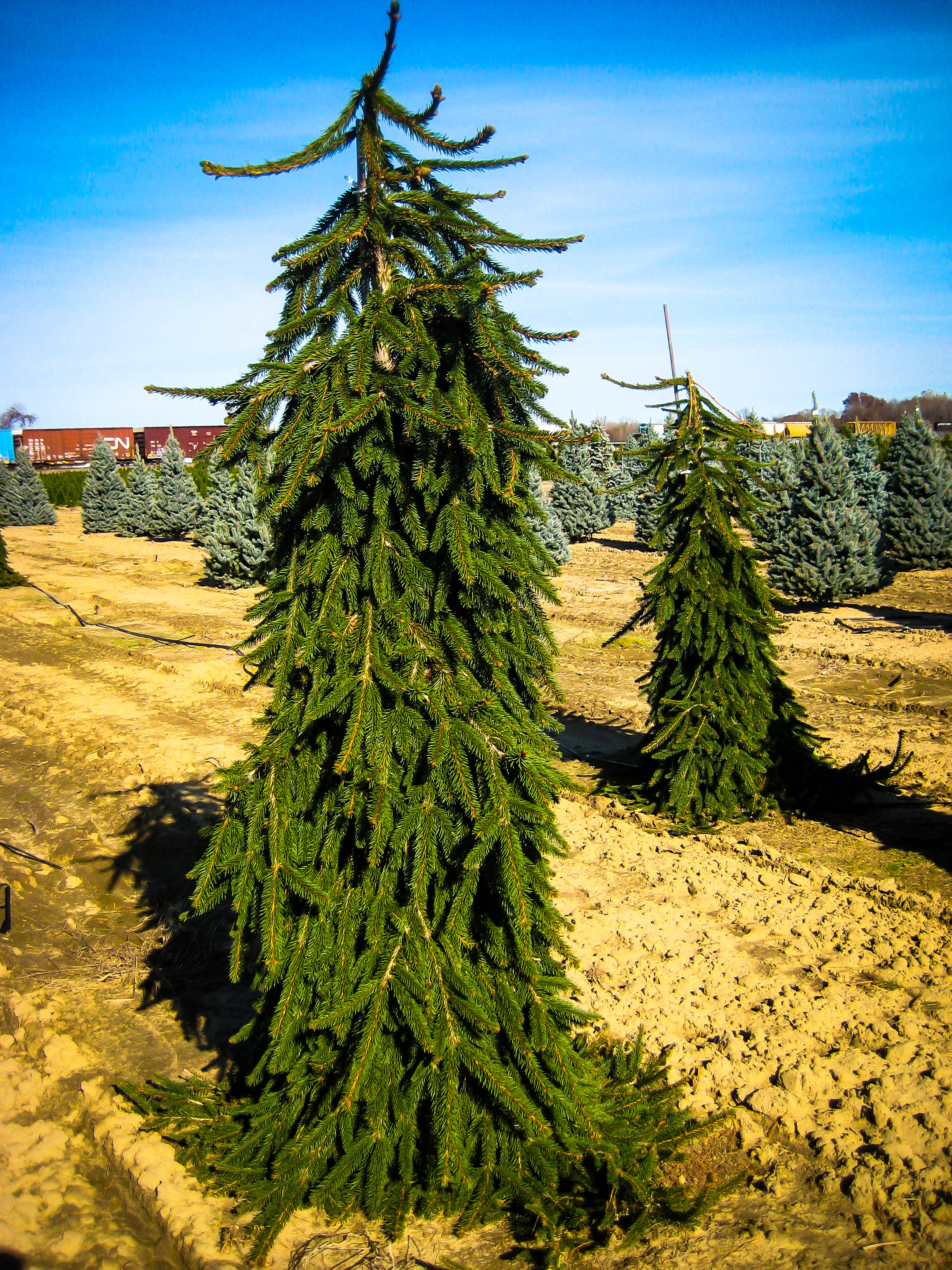Norway Spruce Privacy Screen: The Perfect Solution for Your Outdoor Space
When it comes to enhancing your outdoor space, privacy and beauty are two essential components. If you're looking for a natural way to achieve both, Norway spruce trees offer the perfect solution. These evergreen conifers are well-known for their tall stature, dense foliage, and ability to thrive in a variety of climates.
In this article, we'll explore the benefits of using Norway spruce trees as a privacy screen in your garden or backyard. We'll cover everything from planting and care tips to the different varieties available, so you can make an informed decision about whether this option is right for you.
Planting Tips
When planting Norway spruce trees, it's important to choose a location that receives full sun and has well-draining soil. These trees prefer slightly acidic soil, so adding peat moss or other organic matter to the planting hole can help improve soil quality.
Norway spruce trees can grow up to 60 feet tall and 40 feet wide, so it's important to give them plenty of room to spread out. When planting a privacy screen, it's recommended to space the trees at least 10 feet apart to ensure proper air circulation and growth.
Care Tips
Once planted, Norway spruce trees require minimal maintenance. Regular watering during dry periods, especially in the first few years after planting, will help ensure healthy growth. Applying a layer of mulch around the base of the tree can also help retain moisture and suppress weeds.
Pruning is not typically necessary for Norway spruce trees used as a privacy screen. However, if you do need to prune, it's best to do so in late winter or early spring, before new growth begins.
Varieties Available
There are several different varieties of Norway spruce trees available, each with its own unique characteristics. Here are a few popular options:
- Picea abies 'Acrocona': This variety is known for its bright red cones that appear in the spring.
- Picea abies 'Cupressina': This columnar variety grows tall and narrow, making it an excellent choice for small spaces.
- Picea abies 'Nidiformis': Also known as the bird's nest spruce, this dwarf variety has a round shape and dense foliage.
Benefits of Using Norway Spruce as a Privacy Screen
There are many benefits to using Norway spruce trees as a privacy screen in your outdoor space. Here are just a few:
- Natural Beauty: Norway spruce trees are incredibly beautiful, with dense foliage that provides a lush, green backdrop to your yard or garden.
- Privacy: When planted close together, Norway spruce trees create a thick, impenetrable barrier that can block unwanted views and noise from neighbors or nearby roads.
- Year-Round Interest: These evergreen trees provide year-round interest, unlike deciduous trees that lose their leaves in the fall.
- Low Maintenance: Once established, Norway spruce trees require minimal maintenance, making them a great option for those who want a beautiful, low-maintenance privacy screen.
Potential Drawbacks
While there are many benefits to using Norway spruce trees as a privacy screen, there are also a few potential drawbacks to consider:
- Cost: Depending on the size and quantity of trees you need, using Norway spruce as a privacy screen can be more expensive than other options.
- Size: Norway spruce trees can grow quite large, which may not be suitable for small yards or gardens.
- Slow Growth: While Norway spruce trees can live for hundreds of years, they can be slow to reach maturity, which may make them less suitable for those who want a quick privacy solution.
Frequently Asked Questions
1. How fast do Norway spruce trees grow?
Norway spruce trees can grow up to 2 feet per year, but growth rate will depend on a variety of factors, including soil quality, climate, and pruning.
2. How tall do Norway spruce trees get?
Norway spruce trees can grow up to 60 feet tall, although dwarf varieties are available for those who want a smaller option.
3. Do Norway spruce trees require a lot of water?
While Norway spruce trees prefer moist soil, they are drought-tolerant once established and do not require frequent watering.
4. Are Norway spruce trees deer-resistant?
Yes, Norway spruce trees are generally deer-resistant, which makes them a great option for those who live in areas with high deer populations.
5. Can Norway spruce trees be grown in containers?
While it's possible to grow Norway spruce trees in containers, they do best in the ground where they have room to spread out and grow.
6. Are Norway spruce trees prone to disease or pests?
Norway spruce trees can be susceptible to a few different diseases and pests, including needle cast and spider mites. However, proper care and maintenance can help prevent these issues.
7. When is the best time to plant Norway spruce trees?
The best time to plant Norway spruce trees is in the fall or early spring, when the weather is cool and moist.
8. How much sun do Norway spruce trees require?
Norway spruce trees require full sun to partial shade, although full sun is ideal for optimal growth.
9. Can Norway spruce trees be used as a windbreak?
Yes, Norway spruce trees can be used as a windbreak thanks to their dense foliage and sturdy branches.
10. How long do Norway spruce trees live?
Norway spruce trees can live for hundreds of years, with some specimens reaching over 1,000 years old in their native habitat.
If you're looking for a beautiful and natural way to enhance your outdoor space while also providing privacy, consider using Norway spruce trees as a privacy screen. With proper planting and care, these evergreen conifers can provide year-round interest and low-maintenance beauty for years to come.










Post a Comment for "Norway Spruce Privacy Screen: The Perfect Solution for Your Outdoor Space"